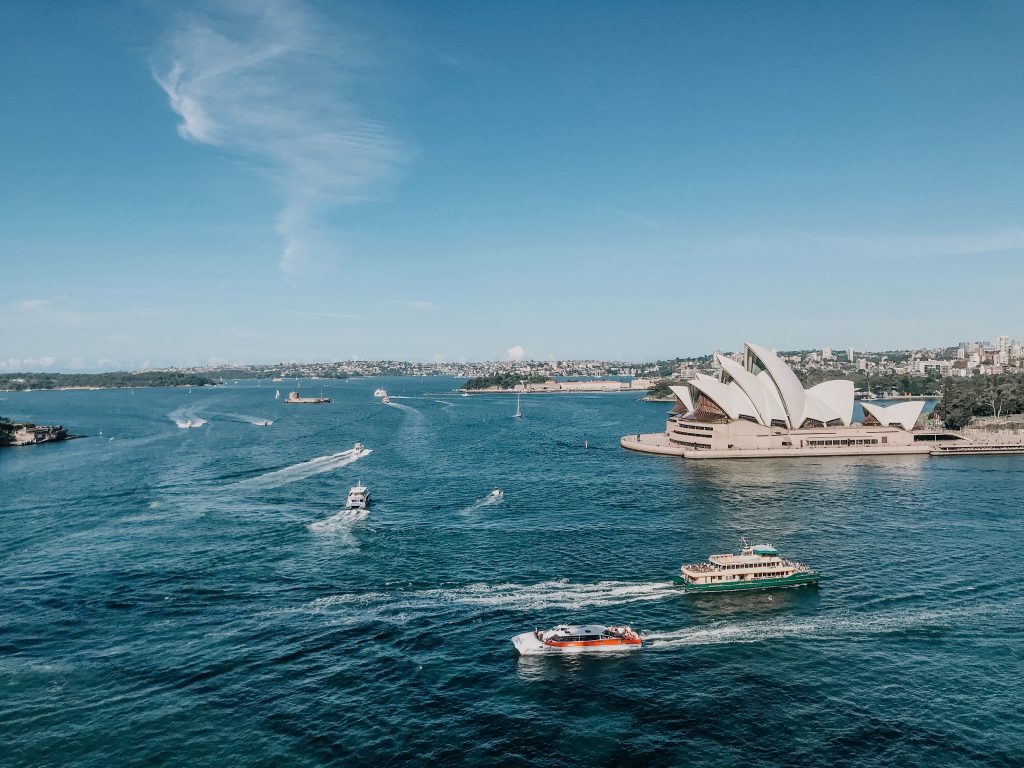Country Details
1. Unique Wildlife: Australia is known for its diverse and unique wildlife. It is home to iconic animals like kangaroos, koalas, wombats, and the largest living structure on Earth, the Great Barrier Reef. The country's rich biodiversity attracts nature enthusiasts from around the world.
2. Vast and Varied Landscapes: Australia offers a range of stunning landscapes, from the sandy beaches of the Gold Coast to the vast Outback, lush rainforests, rugged mountains, and vibrant cities. Visitors can explore iconic landmarks like Uluru (Ayers Rock), the Sydney Opera House, and the Twelve Apostles along the Great Ocean Road.
3. Indigenous Culture: Australia has a rich indigenous culture that dates back over 65,000 years. The Aboriginal and Torres Strait Islander peoples have a deep connection to the land, and their art, music, and storytelling traditions are an integral part of Australian culture. Visitors can learn about indigenous history and culture through various cultural centers and experiences.
4. Quality of Life: Australia consistently ranks high in terms of quality of life. The country offers excellent healthcare, a well-developed education system, and a high standard of living. Its cities, such as Melbourne and Sydney, are known for their multiculturalism, vibrant arts and culinary scenes, and outdoor recreational opportunities.
5. Sporting Culture: Australians have a strong passion for sports, with cricket, Australian rules football, rugby, and soccer being popular. The country has hosted major sporting events, including the Olympic Games and the Cricket World Cup. The Australian Open, one of the four Grand Slam tennis tournaments, is also held in Melbourne each year.
Immigration Details
To immigrate to Australia, there are various visa options available for different purposes. Here are the main ways to obtain residency or citizenship in Australia:
1. Skilled Visa:
- Purpose: This visa is for individuals with skills and qualifications in demand in Australia.
- Requirements: You must meet the eligibility criteria based on your occupation, age, English language proficiency, and skills assessment. The occupation must be on the skilled occupation list.
- Duration: The duration of a skilled visa can vary depending on the specific visa subclass obtained.
2. Employer-Sponsored Visa:
- Purpose: This visa allows you to work in Australia if you have a job offer from an Australian employer.
- Requirements: You must have a sponsor (employer) who is willing to nominate you for a skilled position. The employer must meet certain requirements, and you must meet the skills, qualifications, and English language requirements for the nominated position.
- Duration: The duration of an employer-sponsored visa can vary depending on the specific visa subclass obtained.
3. Business and Investment Visas:
- Purpose: These visas are for individuals who want to establish or manage a business, or make a significant investment in Australia.
- Requirements: The specific requirements and capital investment thresholds vary depending on the visa subclass. Generally, you need to demonstrate business or investment experience, meet minimum net worth and investment criteria, and provide a detailed business plan or investment proposal.
- Duration: The duration of business and investment visas can vary depending on the specific visa subclass obtained.
4. Student Visa:
- Purpose: This visa is for individuals who want to study in Australia at a registered educational institution.
- Requirements: You must have an offer of enrollment from an Australian educational institution, meet the English language proficiency requirements, and provide evidence of financial capacity to cover tuition fees and living expenses.
- Duration: The duration of a student visa depends on the duration of the study program.
5. Family Visa:
- Purpose: This visa is for individuals who have close family members living in Australia and want to join them.
- Requirements: The requirements depend on the family relationship and can include sponsorship by an eligible family member, proof of relationship, health, and character checks.
- Duration: The duration of a family visa can vary depending on the specific visa subclass obtained.
6. Citizenship:
- Purpose: Australian citizenship provides full rights and benefits, including the ability to live and work in Australia indefinitely.
- Requirements: To be eligible for citizenship, you must meet certain criteria, such as holding permanent residency for a specific period, meeting residence requirements, passing a citizenship test, and demonstrating good character.
- Duration: The citizenship application process can take several months to a year.



Add a review